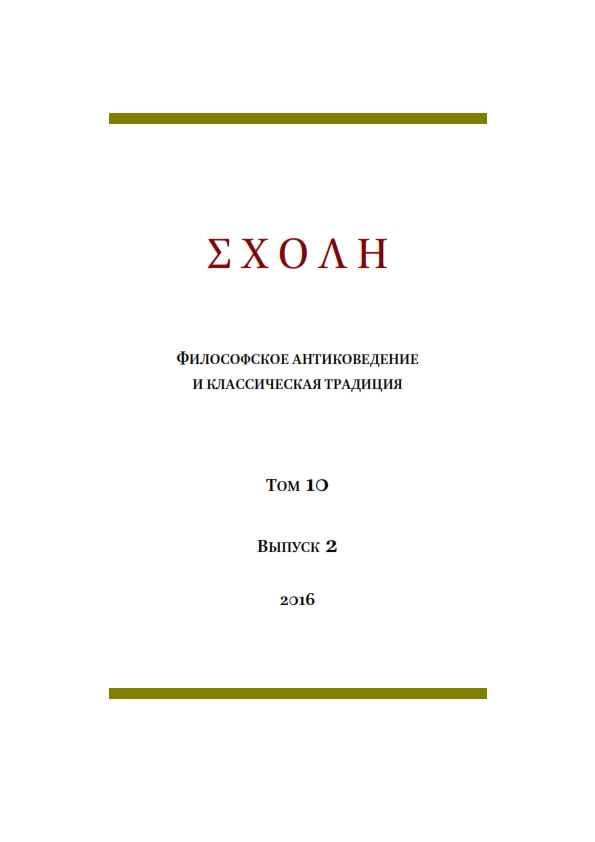НАТУРАЛИСТИЧЕСКИЕ И АНТИНАТУРАЛИСТИЧЕСКИЕ АСПЕКТЫ АРИСТОТЕЛЕВСКОГО ПОНИМАНИЯ ВРЕМЕНИ
NATURALISTIC AND ANTI-NATURALISTIC ASPECTS OF ARISTOTELIAN UNDERSTANDING OF TIME
Author(s): Sergey KulikovSubject(s): Philosophy, History of Philosophy, Special Branches of Philosophy, Ancient Philosphy, Philosophy of Science
Published by: Новосибирский государственный университет
Keywords: time; movement; immobility; measurement; ancient legacy; Aristotle; naturalism; anti-naturalism;
Summary/Abstract: In the article, I discuss the Heideggerian criticism of the Aristotelian concept of time. Heidegger thought that it was Aristotle who is to be blamed for so-called “ordinary” interpretation of time. Later on, Augustine developed this interpretation, while Kant and Hegel brought it to a logical end. The author observes that even if the post-Aristotelian thought and Hegel as its embodiment understood time in many respects naturalistically, we might trace both naturalistic and anti-naturalistic ways of interpretation of time in Aristotle. It appears therefore that Aristotle had also laid the foundations of existential comprehension of time, having influenced thereby the formation of the European rationality in all variety of its forms and manifestations.
Journal: ΣΧΟΛΗ. Философское антиковедение и классическая традиция
- Issue Year: X/2016
- Issue No: 2
- Page Range: 512-520
- Page Count: 9
- Language: Russian

